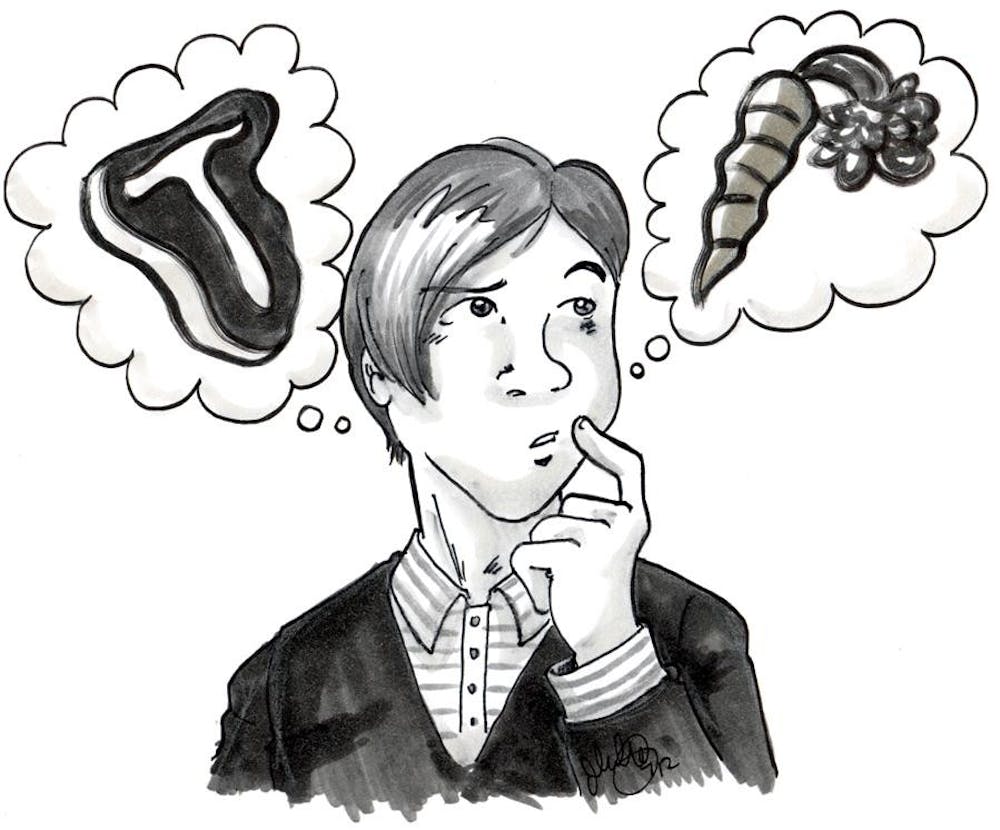I’ve never been obnoxious about my vegetarianism. The first two years I went veggie, I didn’t even tell any of my friends, prompting confused looks when I refused to eat whatever meat product everyone else was enjoying (this was in middle school, hence the heightened awkwardness).
However, I’ve been thinking a lot the past few years about the conventional meat industry and how it works, and I think it’s time to eschew my habitual meekness, get up on my high horse and proselytize. That’s not to say that I’m going to attempt to turn everyone into a vegetarian — that’s absurd and, for some people, not the healthiest option.
What I would like to do, however, is encourage everyone to think before purchasing meat or dairy products. Animal cruelty, cutting down the world’s rainforests to make room for more cattle ranches and the ick-factor aside (I’m sure you’ve all seen “Food, Inc.”), meat and dairy consumption at current levels, especially in Western countries, is totally unsustainable, according to a 2010 United Nations report.
But you don’t need a UN report to realize that agribusiness’ use of land, chemical fertilizers, antibiotics, genetic modification, etc., is hugely detrimental to the earth and biodiversity. This applies to conventional grain, fruit and vegetable production as well. But meat requires more land and often involves the mistreatment of living beings.
So, what’s a meat eater to do? You could stop eating meat. But many people don’t see vegetarianism as a viable option, and some argue vegetarianism is equivalent to being a “silent protester” because vegetarians’ consumer power is not being directed toward local, sustainable meat and dairy farmers.
If vegetarianism isn’t for you, eating your meat from small, local farms is the best alternative to buying the agribusiness meat and dairy products sold at most grocery stores. Small, local farms deserve the support of meat eaters for their work in promoting humane, sustainable meat and dairy production.
However, not everyone has access to such farms, whether for financial, geographic or other reasons — like being a college student.
Moreover, some people argue that small, local farms are not a practical solution, as they would never be able to produce enough to feed everyone and would inevitably have to turn to industrial production in order to do so.
Joel Salatin is a farmer who disproved this idea with his large organic farm, Polyface, in Virginia. But even Salatin relies on fossil fuels to run his farm. There’s clearly no easy solution to the problems — environmental and moral — that come with meat and dairy production.
The best thing you can do is think before you meat.
— ccleahy@indiana.edu
Meat: eat it right, or don’t eat it at all

Get stories like this in your inbox
Subscribe





